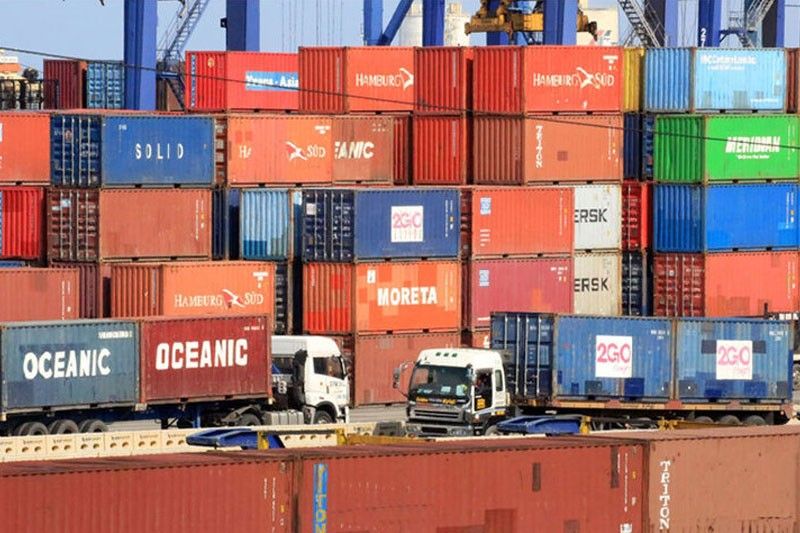Trade gap eases in December amid softening exports, imports

MANILA, Philippines — The Philippines’ trade gap was trimmed in December amid softening exports and imports as the global economy steels itself for an economic slowdown.
Trade deficit, which occurs when the country’s imports bill outgrows export sales, shrank 10.2% year-on-year to $4.6 billion in December. This, however, was larger by 23.9% compared to the previous month’s gap, data released by the Philippine Statistics Authority showed.
The country’s external trade narrowed by 9.9% year-on-year to $15.9 billion in December. This was slower compared to the 3.8% annual growth rate in November.
Broken down, exports retreated 9.7% year-on-year to $5.7 billion in December. Outbound shipments of electronic products, the country’s top export product, declined 13.9% annually to $3.17 billion in December.
Imports shrank 9.9% compared with a year ago, tallying $10.3 billion in December. This came as the value of seven of the country’s top imports, such as iron and steel, declined.
Sought for comment, Nicholas Antonio Mapa, senior economist at ING Bank in Manila, said he expected exports to soften.
"We had expected exports to finally contract as global demand for electronics fades. This trend was noted in slowing trade in other ASEAN neighbors so it was only a matter of time that it surfaced in the Philippines,” he said in a Viber message.
Mapa noted global demand would soften in 2023, amid headwinds. For him, demand could firm up once China sees economic activity resumes.
“Import trends however suggest that growth momentum is fading. Capital imports and raw materials imports are down again, suggesting that rapid fire rate hikes carried out amidst the global commodity boom are negatively impacting domestic capital formation,” Mapa added.
In the Philippines, Mapa explained that higher borrowings costs could deter capital formation.
“Although a full-blown recession may be a remote occurrence for the Philippines, higher borrowing costs are still likely to cap capital formation and overall growth down the line,” he said.
- Latest
- Trending





























